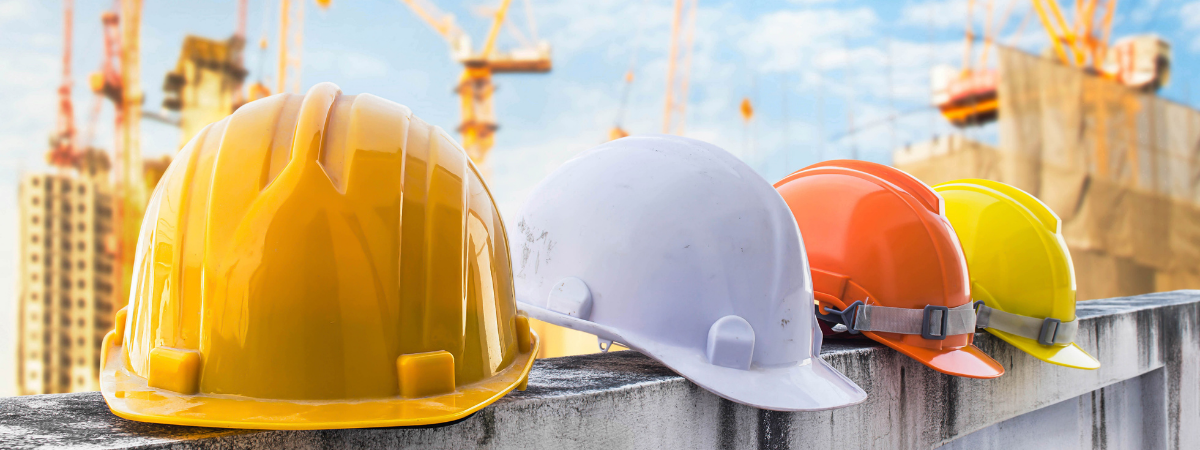Here’s how to avoid the most common construction risks

Safety hazards and workplace accidents are just one type of risk for construction companies. There are more, including:
-
Labour shortages
-
Contracts you could drive a truck through including a sketchy scope and poor drawings
-
Damage or theft of your equipment and tools
-
Unexpected increases in material costs or changes in the availability of building materials
-
Natural disasters
-
Unknown site conditions
Exploring the risk categories
Construction has the third highest fatality rate of Australian industries - two in 100,000 workers, says Safe Work Australia.
Part of the problem is companies operate with lean teams, and there’s a skills shortage, with the lack of specialist workers expected to hamper infrastructure projects. Construction accounts for 8.8% of Australia's total workforce and has increased by 7.1% over the past five years. While the pandemic hampers supply chains and project deliverability, the shortage of skilled workers could impinge on quality, workmanship and productivity.
For construction contracts, standard forms are the norm - check your state’s relevant Act. Contract variations are expected. Poorly drafted terms can undo a supposedly valid agreement. Check the fine print with your lawyer. Ensure you understand the timelines, completion dates, extension, and delay clauses plus options.
Meanwhile, theft and vandalism at building sites continue to plague the sector. A whopping $650 million worth of equipment is stolen from Australian construction sites each year. While vandals and third parties are often to blame, staff pilfering is also a persistent threat. It’s a major reason for cost overruns in projects.
How to manage these risks
You prioritise risk assessments for your business - you do them periodically or whenever your environment changes, complimented by daily on-site inspections before work commences. Dig deeper, get more comprehensive when you’re doing a risk assessment on your own company to boost your risk-based mitigation action plan.
Awareness of your risks is a step in the right direction.
As a self-employed contractor, the range of insurance options available might seem overwhelming. Usually, you’ll need public and product liability, income protection, contractual liability, and even tool insurance.
Public liability insurance will be a must for many contracts you sign, although the amount of minimum cover stipulated can vary from $5M to $20M. Your head contractor’s insurance may not cover you. Your policy should protect your liabilities for your actions, such as negligence, which could cause property damage or personal injury to a third party.
Protecting your income is vital especially if you are self-employed. Income protection insurance may be appropriate because you won't usually be entitled to workers’ compensation or sick leave.
Contractual liability insurance gives you a stronger footing should the fine print on the contract shift unexpected responsibilities to you. That includes making you responsible for all incidents while you’re on-site, not just those due to your negligence. Contractual liability insurance protects you and your business when there’s a claim that makes you liable thanks to the contract, not because of your negligence.
Tool insurance covers you for theft of your tools of trade or if they’re damaged by fire or through a vehicle collision. This cover might give you peace of mind when you’re on site. However, it’s only if your policy offers ‘open-air cover’ that you’d be covered for tools stolen from a worksite when they haven’t been locked away, such as in a tool chest.
They’re just a few insurance options you have to help you manage the risks of your construction business. They’re your foundation to build a successful business. This can be a complex area but we can customise a suite of insurance policies to match your needs.
The information provided in this article is general advice only, and is not intended to be a substitute for legal or other advice. General Advice is advice that has been prepared without considering your current objective's, financial situation or needs. Therefore, before acting on this advice, you should consider the appropriateness of the advice having regard to your current objective's, financial situation or needs. Read our complete general advice warning
Tags: Builders Public Liability Trades






